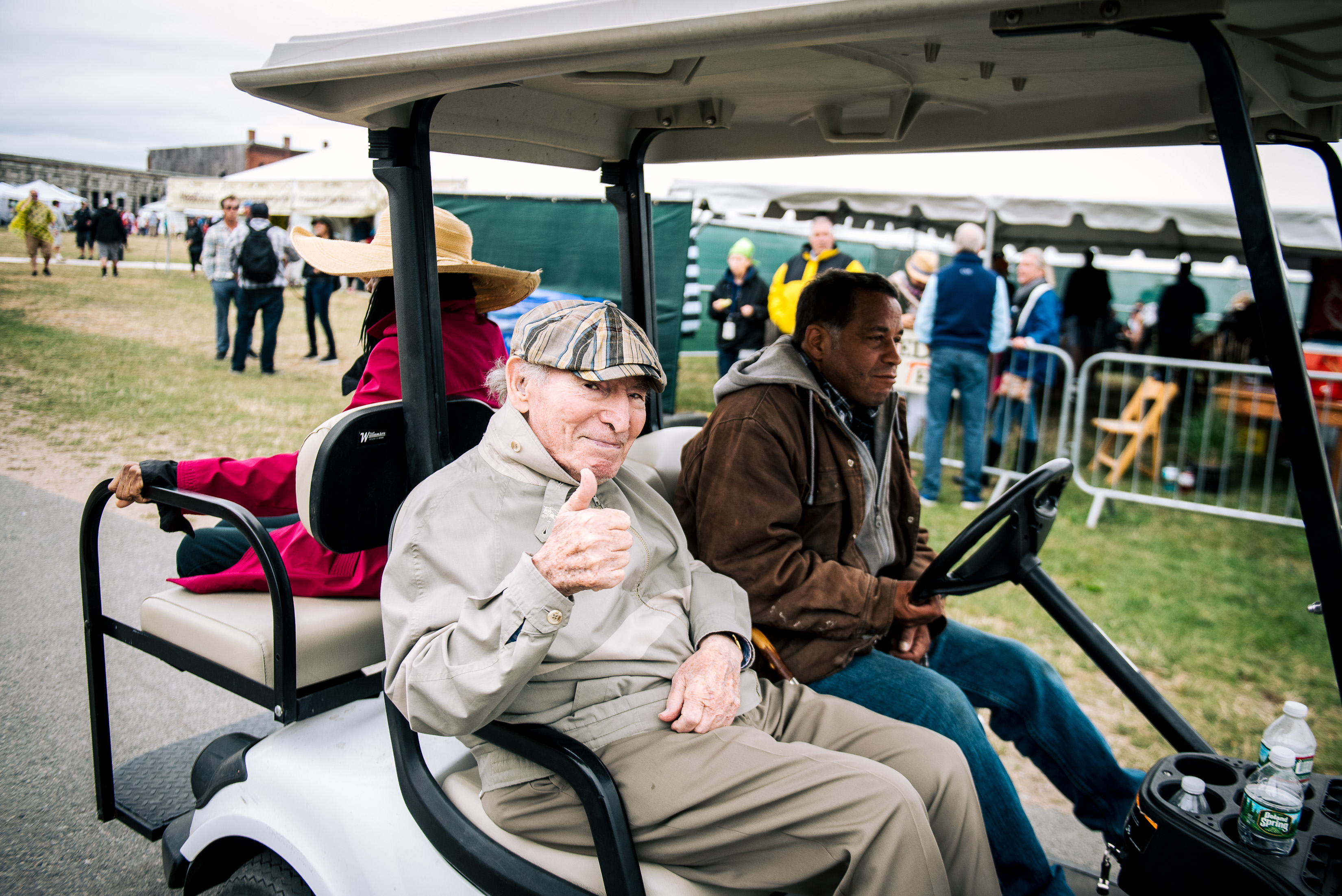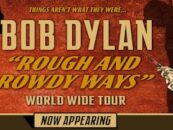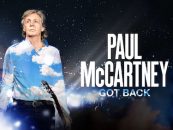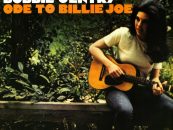George Wein, Founder of Newport Jazz and Folk Festivals, Dies
by Best Classic Bands Staff
George Wein (Photo: Nina Westervelt; used with permission)
George Wein, who created the Newport Jazz Festival and later the Newport Folk Festival, and New Orleans Jazz and Heritage Festival, died at his home in Manhattan on September 13, 2021. He was 95. Wein created the music festival as we know it, putting jazz and folk and their many variations in the most accessible performance spaces to the widest audiences possible. In a career spanning seven decades, Wein was, at one point, the most influential presenter of music around the globe. News of his passing was announced by his publicist, Carolyn McClair.
Wein made stars of and revived the careers of generations of musicians who performed at his venues. Miles Davis, who told Wein that “You can’t have a festival without me,” performed his comeback in 1955 with his immortal performance of “‘Round Midnight.” The following year, Duke Ellington said he was “born at Newport” when he recorded one of his biggest hits, “Diminuendo and Crescendo in Blue.”
When Wein received a Grammy® Honorary Trustee Award in 2015, the awards show host, rap star/actor LL Cool J, said, “George Wein defined what a music festival could be with the Newport Jazz Festival, Newport Folk Festival and the New Orleans Jazz and Heritage Festival. This is a great guy. More than anyone, George set the stage for what great festivals today look like; festivals like Coachella, Bonnaroo … he made this possible…”
In his 2003 biography, Myself Among Others: A Life in Music, with Nate Chinen, Wein wrote, “Whether it’s one of the many festival producers throughout the world, or the concert promoters, or the individual nightclub owners struggling night to night – their contributions are essential to the history of this music. I’m glad to have been part of this process: in the development of the jazz festival, the acceptance of this music as art, the efforts to bring jazz to a wider audience worldwide.”
George Theodore Wein (pronounced ween) was born in Newton, Mass., on, Oct. 3, 1925. He started taking piano lessons at the age of eight. He was later introduced to Earl Hines’ horn-like piano style and the die was cast for his life in jazz and music. Wein played in various jazz bands around Boston while still in Newton High School. After a year in college, he was drafted into the Army. He maintained that he got his greatest education and life lessons from negotiating with fellow soldiers of many races, ages and faiths. Following his honorable discharge from the Army, he returned to Boston University on the G.I. Bill and graduated from the School of Liberal Arts in 1950.
After college, 25-year-old Wein opened his own jazz club, Storyville, in Boston, which featured world-renowned stars and emerging artists. He created a record label of the same name, recording some of the best in live music. But, he would undergo the biggest opportunity and challenge of his life in 1954, when he met Newport socialites Louis and Elaine Lorillard, who asked him to create something to liven up summers in the City-by-the-Sea. A fan of the classical music festival in Tanglewood, Wein began to formulate his plan.
He wrote in his memoir, “What was a festival to me? I had no rule book to go by. I knew it had to be something unique, that no jazz fan had ever been exposed to. I remembered my nights in New York City when I had started off in Greenwich Village at 8 p.m., gone to Harlem, and ended up seven hours later at 52nd Street. I could never get enough jazz. I heard Dixieland, big bands, swing, unique singers, and modern jazz. I’m sure that’s what directed my concept of the Newport Jazz Festival.”
The Newport Jazz Festival became the gold standard for presenting jazz to the public. All of the major stars have performed there, and 67 years later, they still do. Thelonious Monk, Dave Brubeck, Lester Young, Louis Armstrong, Sarah Vaughan, Count Basie, Frank Sinatra, Muddy Waters, Tony Bennett, Chick Corea, as well as Herbie Hancock, Wynton Marsalis, Jon Batiste, Diana Krall and countless others have been a part of the festival’s storied history.
Watch some highlights from the 1960 Newport Jazz Festival
In 1959, the same year Wein married Joyce Alexander, an African-American biochemist, he co-founded the Newport Folk Festival with folk artist Pete Seeger. They later hired producer Bob Jones, and went on to present the best and brightest musicians of folk, blues, and gospel, including Joan Baez, Bob Dylan, Peter, Paul & Mary and the Dixie Hummingbirds. More recently, artists playing Newport have included Mavis Staples, Nathaniel Rateliff, Dolly Parton and John Prine.

Mike Bloomfield (left) and Al Kooper (right) backing up Bob Dylan at the Newport Folk Festival in 1965
It was on a Newport Folk stage in 1965 that Dylan famously (infamously to some) went electric. Wein, who sensed the displeasure of the audience, asked Dylan to go back onstage and play some acoustic selections. He did as requested, and the set became known as one of the defining moments in 20th Century music.
Wein turned over the reins of the Folk Festival to producer Jay Sweet in 2009.
Related: First-hand stories of Dylan at the 1965 Newport Folk Festival
Watch Dylan perform “Mr. Tambourine Man” at Newport one year earlier
The decades from the ’60s to the ’90s saw Wein’s operation, Festival Productions, expand. In 1970, he founded the New Orleans Jazz and Heritage Festival, which he later turned over to his protégé Quint Davis. Despite its name, that festival has annually featured major rock, R&B, country, gospel and blues artists, alongside local and international jazz greats.
Watch Santana perform at the 2014 New Orleans Jazz Fest
In 1975, Wein and promoter Dino Santangelo launched the KOOL Jazz Festivals, which featured jazz, R&B and soul artists on the same stages in large arenas across the country, including Oakland, Atlanta, Hampton, Va., Cincinnati, San Diego, Houston and Kansas City. Jazz superstars McCoy Tyner, Freddie Hubbard, Quincy Jones, Donald Byrd and Cannonball Adderley played on the same bill with the Ohio Players, the O’Jays, the Isley Brothers and B.B. King.
In 2007, Wein sold his company to a group of young entrepreneurs, who within two years ran into financial trouble. To keep his legacy alive, Wein, then 81, reacquired the festival names and remained active with them until his death. In 2009, he aptly titled his flagship events George Wein’s Newport Jazz Festival 55 and George Wein’s Newport Folk Festival 50, funding both events with his own money and funds from a few friends.
A lifelong student of Black culture, Wein and his wife, who died in 2005, created The George and Joyce Wein Collection of African-American Art, which went on display at Boston University in 2019.
In addition to the Grammy Award, honors and awards were bestowed upon him by Presidents Bill Clinton and Jimmy Carter, the French Legion d’Honneur and Chile’s Order of Bernardo O’Higgins, among them. Wein was the recipient of honorary degrees from Boston University, the Berklee College of Music, Salve Regina University, Rhode Island College of Music and North Carolina Central University. He was a lifetime Honorary Trustee of Carnegie Hall and on the board of The Louis Armstrong Educational Foundation.
Wein made his last public performance on piano in 2019 in Newport at a pre-festival concert and he presented his band, the Newport All-Stars, at the 2010 and 2012 jazz festivals.
He told National Public Radio in 2014, “Jazz will go where musicians take it, because they’ll always want to play. And, as long as they want to play, somebody’s going to listen.”
George and Joyce Wein had no biological children, but he is said to have loved and nurtured dozens of festival “children and grandchildren” around the world.
Related: Musicians we’ve lost in 2021
- Jeff Lynne Cancels Manchester Concert Minutes Before Scheduled Start - 07/10/2025
- Bob Dylan Significantly Expands 2025 Tour - 07/10/2025
- Paul McCartney Announces 2025 ‘Got Back’ Tour - 07/10/2025






No Comments so far
Jump into a conversationNo Comments Yet!
You can be the one to start a conversation.